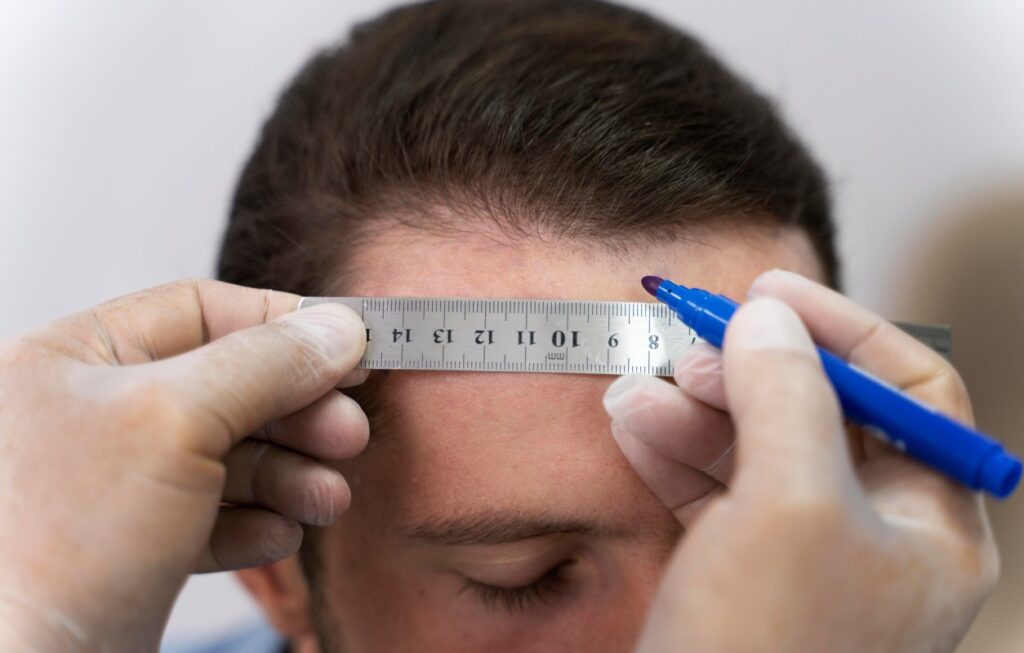Hair loss is a common concern for many individuals, affecting both men and women and leading to a quest for effective solutions. One of the most significant factors contributing to hair loss is genetics. Understanding how genetics plays a role in hair loss and its implications for hair transplant success is crucial for those considering surgical intervention.
The Genetic Basis of Hair Loss
Genetics is the primary determinant in the most prevalent form of hair loss, known as androgenetic alopecia (AGA), often referred to as male or female pattern baldness. This condition is characterized by a progressive thinning of hair, typically starting at the temples or crown for men and more diffusely across the scalp for women.
- Inheritance Patterns: The genetic predisposition to AGA is polygenic, meaning multiple genes contribute to the condition. While the androgen receptor (AR) gene, located on the X chromosome, is frequently associated with male pattern baldness, other genes are implicated in both men and women. As a result, individuals with a family history of hair loss are more likely to experience it themselves.
- Hormonal Influence: Dihydrotestosterone (DHT), a derivative of testosterone, plays a significant role in hair loss. Genetic factors determine how sensitive hair follicles are to DHT. In genetically predisposed individuals, DHT binds to receptors in hair follicles, leading to miniaturization and eventual follicular death.
- Age Factor: Genetics also interacts with age to influence hair loss. As individuals age, the likelihood of hair loss increases, especially in those with a family history. This means that understanding one’s genetic background can provide valuable insights into the potential for future hair loss.
Impact of Genetics on Hair Transplant Success
When considering a hair transplant, it’s essential to recognize how genetics can affect the outcomes of the procedure.
- Donor Hair Quality: The success of a hair transplant largely depends on the quality and availability of donor hair. The donor site is typically the back of the scalp, where hair is genetically resistant to balding. If an individual has a strong genetic predisposition to hair loss, the density and quality of the donor hair may be compromised. A thorough evaluation of the donor area is critical to ensure adequate hair follicles for transplantation.
- Hair Follicle Characteristics: Genetic factors also influence the characteristics of hair follicles, such as thickness, texture, and growth rate. Finer hair may not provide the same visual coverage as thicker hair, which can affect the overall aesthetic results of a transplant. Understanding the genetic traits of one’s hair can help set realistic expectations for the outcome of the procedure.
- Pattern of Hair Loss: The progression of hair loss varies among individuals due to genetic factors. Those with a well-defined pattern of hair loss are often better candidates for hair transplantation because the surgeon can strategically place grafts in areas that will provide optimal coverage. Conversely, individuals with diffuse thinning may experience less predictable results, as the ongoing hair loss could affect the transplanted hair over time.
- Long-Term Outcomes: Genetics not only influences the immediate success of a hair transplant but also its long-term sustainability. If a patient continues to lose non-transplanted hair due to genetic factors, the contrast between transplanted and native hair can become more pronounced, leading to an unnatural appearance. This is why ongoing hair loss management, such as medications like finasteride or minoxidil, is often recommended in conjunction with hair transplant procedures.
Genetic Testing and Consultation
Given the significant role of genetics in hair loss and transplant success, prospective patients should consider genetic testing and a thorough consultation with a qualified hair restoration specialist. Genetic testing can provide insights into individual susceptibility to hair loss and help inform personalized treatment plans.
- Personalized Treatment Plans: Understanding genetic predispositions allows healthcare providers to tailor treatment strategies that may include medications, lifestyle changes, and surgical options based on an individual’s unique genetic profile.
- Informed Decision-Making: Genetic insights empower patients to make informed decisions about their hair restoration journey, helping them understand potential outcomes and setting realistic expectations.
Conclusion
Genetics is a fundamental factor in hair loss and plays a crucial role in the success of hair transplant procedures. By understanding the genetic basis of hair loss, individuals can better navigate their options and enhance their chances of achieving satisfactory results. Consulting with knowledgeable professionals and considering genetic testing can provide valuable information, leading to more effective and personalized hair restoration strategies. Whether considering a hair transplant or exploring alternative treatments, recognizing the influence of genetics is key to making informed decisions and ultimately restoring confidence.



